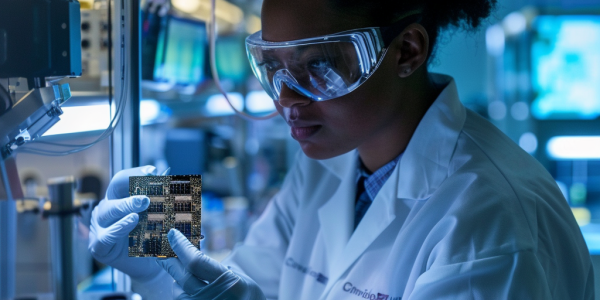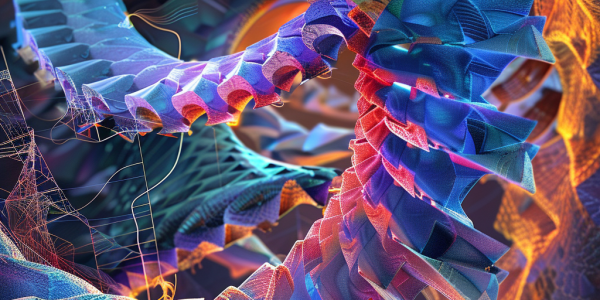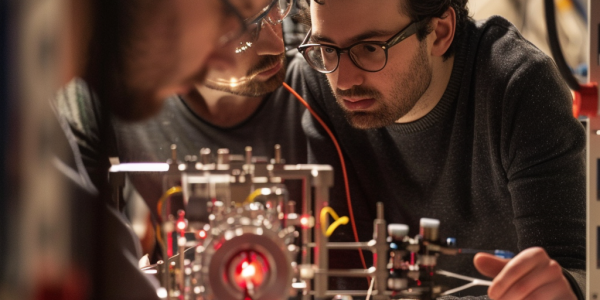Quantum Computing, Inc. Faces Stock Decline Amid Production Challenges
Quantum Computing, Inc. (QUBT) faces a significant stock decline due to critical concerns raised by Iceberg Research regarding its thin-film lithium niobate (TFLN) device production capabilities. The company has postponed its manufacturing timeline to 2025, prompting investors to reconsider their positions in the quantum tech sector. As competitors may capitalize on Quantum’s struggles, the market is abuzz with potential investment opportunities in TFLN technology and semiconductor manufacturing.
Quantum Sensors: Revolutionizing Medical Diagnostics and Patient Care
Quantum sensors are revolutionizing medical diagnostics with their unprecedented sensitivity and potential for early disease detection. A report from the Quantum Economic Development Consortium highlights their applications in real-time microbiome analysis and non-invasive fetal health monitoring. These portable, cost-effective sensors could democratize advanced diagnostics, improving patient outcomes in conditions like Alzheimer’s and enhancing prenatal care. As research progresses, quantum technology promises to transform healthcare, making accurate diagnostics more accessible.
Breakthrough in Vortex Electric Field Could Transform Electronic Devices
Researchers at City University of Hong Kong have discovered a novel vortex electric field in twisted bilayer molybdenum disulfide, promising to enhance electronic, magnetic, and optical devices. This groundbreaking study simplifies the generation of electric vortex fields, paving the way for advancements in quantum computing, spintronics, and nanotechnology. Led by Professor Ly Thuc Hue, the team developed an innovative ice-assisted transfer technique, allowing for precise manipulation of twist angles, which could revolutionize material science and technology.
Willow: A Breakthrough in Quantum Computing
Willow, Google’s groundbreaking quantum chip, is revolutionizing quantum computing with its ability to exponentially reduce errors and achieve unmatched computational speed. This technological milestone promises to tackle complex problems across various sectors, paving the way for transformative innovations in pharmaceuticals, materials science, and artificial intelligence.
Argonne Scientists Receive $65 Million DOE Funding to Advance Quantum Computing
Three scientists from Argonne National Laboratory have received $65 million in funding from the U.S. Department of Energy to advance quantum computing technologies. Their projects aim to enhance quantum algorithms and software, with potential applications in energy, medicine, and national security. This initiative marks a significant step in harnessing quantum technology for solving complex scientific problems, paving the way for groundbreaking discoveries.
Breakthrough in Quantum Computing with Microwave Circulator Device
Researchers at the University of Massachusetts Amherst have made a groundbreaking discovery in quantum computing with the development of a microwave circulator. This device allows precise control of nonreciprocity between qubits and microwave-resonant cavities, essential for quantum information processing. Their research, published in Science Advances, introduces a new theory that simplifies and enhances previous understandings of nonreciprocity, benefiting future studies in the field. Quantum computing, based on qubits in quantum superposition, offers enhanced computational power, while nonreciprocity opens up new possibilities for harnessing the full potential of the quantum realm.
MIT Researchers Make Groundbreaking Discovery of Neutronic Molecules
MIT researchers have made a groundbreaking discovery of ‘neutronic molecules,’ revealing that neutrons can bind to nanoscale atomic clusters known as quantum dots. This finding could offer valuable insights into material properties and quantum effects, potentially leading to the development of innovative tools for exploring quantum-level phenomena. Unlike protons and electrons, neutrons are subatomic particles that lack electric charge, making them impervious to the electromagnetic force that governs most interactions between radiation and materials. However, MIT researchers have now demonstrated that neutrons can be induced to adhere to quantum dots—comprising tens of thousands of atomic nuclei—solely through the strong force. This unexpected revelation opens up new possibilities for investigating material properties at the quantum level, particularly those stemming from the strong force, and for exploring novel forms of quantum information processing devices.
Quantum Computing and the Future of Copyright Law
A new study from the University of Exeter suggests that quantum computing will revolutionize copyright law, impacting the tracking and tracing of legal owners of artistic works. Dr. James Griffin highlights the potential for quantum computers to make judgment calls on copyright infringements, while also predicting a rise in unauthorized reuse of copyrighted materials. The study also anticipates an increase in enforcement of copyright law through technological protection measures, creating a complex landscape for copyright in the era of quantum computing.








